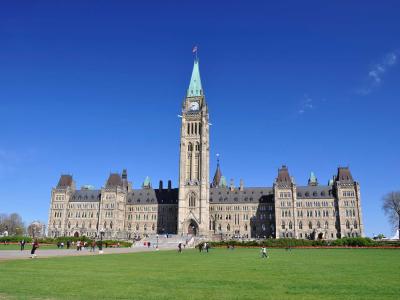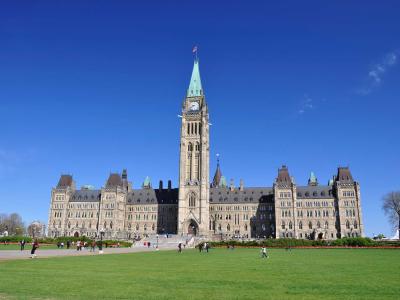A Probe Research/JS Insights survey finds that Doug Ford and the PCs are in a strong position heading into the provincial election on February 27. However, this is in spite of a challenging environment where a strong proportion of Ontario voters want a new government and would like to see the other parties at Queen's Park offer to form a coalition government if they collectively win more seats than the PCs.
Key insights from this survey include:
Ontarians do not feel things are going well for them, or for their province. More than one-half indicate Ontario is heading in the wrong direction, compared to one-quarter who think things are on the right track. Nearly one-half think their own personal circumstances are worse today than they were three years ago, compared to just 15 per cent who think things are better for them personally, and one-third who believe their personal circumstances have not changed.
Nearly one-half believe Ontario needs a new government, but a significant proportion hope the election ends with a PC victory. Fewer than four in 10 believe Doug Ford and the PCs should be re-elected, compared to 48 per cent who believe it is time for a change. However, one-third of Ontarians want the PCs to win a similar-sized or larger majority government than what they have now, with another one in five wanting a smaller PC majority or a PC minority government. One-third want one of the opposition parties to win, while nearly one in five have no preference on who forms the next provincial government.
A majority of Liberal, NDP and Green Party supporters want these parties to form a coalition government. A majority of those who plan to vote for the current opposition parties want these leaders and candidates to campaign on a promise to govern together if they manage to win more seats than the PCs. Non-PC voters are also most likely to believe Bonnie Crombie and the Ontario Liberals are best positioned to defeat the PCs. They are also somewhat more enthusiastic about voting Liberal to defeat a PC candidate.
Public impressions of Doug Ford and his government are not positive, but many citizens see him as someone who will stand up for Ontario. Nearly four in 10 Ontarians have a worse impression of Doug Ford today compared to when he was first elected premier in 2018, versus one in five who say their view of him has improved. More than six in 10 agree the Ford government is more focused on gimmicks than important issues, with more than one-half agreeing the PCs are more concerned about helping their friends than regular Ontarians. However, nearly one-half agree Ford is best suited to standing up to both U.S. President Donald Trump and the federal government.
The cost of living is by far the top issue driving voter sentiment – and Ford and the PCs are seen as best suited to address voters’ top priorities. Nearly four in 10 point to the cost of living as their primary concern in this election, with fewer than one in five making their choice based on the threat of U.S. tariffs and the state of the health care system. Ford and the PCs are seen as best suited to deal with the cost of living and the proposed tariffs, with the PCs tied with the Liberals when it comes to the party seen as being best suited to fix health care.
Doug Ford and the PCs hold a commanding lead, with the party consolidating its potential vote to a greater degree than others. Forty-seven per cent (47%) of decided and leaning voters plan to cast a ballot for the PCs, compared to 27 per cent who prefer Bonnie Crombie and the Liberals, 17 per cent who plan to vote for Marit Stiles and the NDP and eight per cent who will back Mike Schreiner and the Greens. Fifteen per cent of Ontarians are undecided. The PCs hold significant leads in most regions, especially the suburban Greater Toronto Area (GTA) and Central and Eastern Ontario. The Liberals hold a slight lead in the City of Toronto (39% to 35%) and are the second-choice party in every other region except Hamilton-Niagara, where the NDP are a distant second to the PCs (41% PC, 28% NDP, 24% Liberal).
Seven in 10 PC voters are certain of their choice, with nearly two-thirds of Liberal voters planning to cast ballots for this party. NDP and Green voters are less certain. Ontarians also express a higher degree of openness for voting for either the PCs or Liberals compared to the NDP or Greens.
The Story
Even in a difficult environment with a strong desire for change, Doug Ford and the Progressive Conservatives (PCs) appear set to cruise to re-election. None of the arrows slung by opposition leaders appear to be having any impact on Ford’s formidable lead – and on most issues, voters consider Ford and the PCs the best choice to address the challenges facing the province.
Normally, the overall mood of the province and appetite for change would sink an incumbent government. More than one-half of Ontarians state they believe things in Ontario are going in the wrong direction and nearly one-half of Ontarians believe their own personal situation is worse than it was three years ago. Nearly one-half believe it is time for a change in government in Ontario, and majorities of Ontarians agree with some of the main criticisms of Ford and the PCs – namely, that they are focused on electoral gimmicks and prioritize their friends over the concerns of ordinary Ontarians.
One key reason Ford’s political obituary is not being prepared is that despite these “bad actor” characterizations, the PCs maintain a healthy lead over their rivals when it comes to addressing important policy issues like making day-to-day-life more affordable and creating jobs and economic development. Ford is also Ontario’s undisputed champ when it comes to dealing with proposed U.S. tariffs and standing up to Donald Trump. Ford’s dominance on these high-priority election issues seems to be keeping the PC boat afloat.
For the second election in a row, Ontario’s anticipated “progressive primary” does not seem to have materialized – and there is likely little time for non-PC voters to coalesce around a clear alternative. While the Liberals are perceived by a majority of non-PC voters as the most viable option to defeat the incumbent – and a higher share of voters are open to voting Liberal – significant numbers of NDP voters will not vote Liberal, and vice-versa. Interestingly – and perhaps because of the long stretch of co-operation in Ottawa between the federal Liberal government and the NDP – there is a strong appetite among non-PC voters for the Ontario Liberals, NDP and even the Greens to express a promise to govern together if they can manage to win more seats than Doug Ford and the PCs.
Methodology
The survey was conducted with 1,200 Ontario adults between February 10 and 16, 2025. A random sample of Ontario adults who belong to a large scale national online panel (Dynata) were invited to complete the survey. Because an online panel is a non-probabilistic sample of convenience, no margin of error can be ascribed. For the purposes of comparison, a probability sample of this size would have a margin of error of ± 2.8 percentage points, 19 times out of 20. Minor statistical weighting has been applied by age, gender and regional and educational attainment so that the sample properly reflects the province’s population, based on Census data. The survey was paid for by Probe Research and JS Insights.
Disclosure Statement
Probe Research is a member of the Canadian Research Insights Council (CRIC) and confirms that this research fully complies with all CRIC Standards including the CRIC Public Opinion Research Standards and Disclosure Requirements. The full set of data tables for this survey can be provided upon request to [email protected]. Learn more about the disclosure standards at: https://www.canadianresearchinsightscouncil.ca/standards/por/




